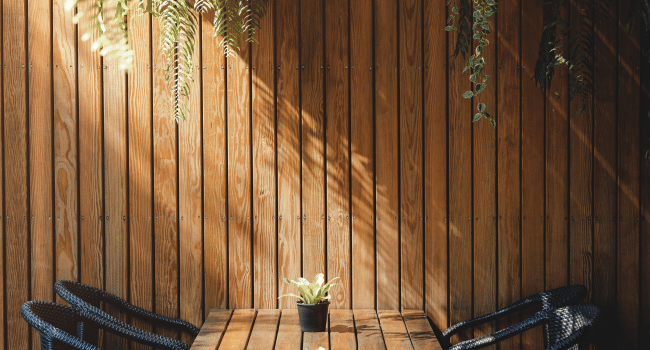Table of Contents
Creating a retail space that is both inviting and efficient requires meticulous planning and execution. Shop fit outs are a crucial element in this process, offering retailers the opportunity to craft an environment that reflects their brand, enhances customer experience, and optimises operational flow. Through the strategic integration of design, functionality, and technology, businesses can significantly bolster their ability to attract and retain customers.
Understanding the Concept of Shop Fit Outs
A shop fit out involves the complete finishing of an interior space suited to a retailer’s specific needs. This includes both aesthetic elements such as fixtures and décor, and functional components such as shelving, lighting, and technology systems. An effective fit out contributes to a shop’s ambience, showcases products effectively, and supports the business’s operational efficiency.
The Role of Design in Retail Spaces
Design plays a pivotal role in the world of retail. It’s the canvas upon which a brand paints its identity, engaging customers through visual storytelling. Design must be consistent with a business’s branding, resonating with its target audience and creating a memorable in-store experience. Moreover, a well-designed retail space can lead to increased dwell time and, consequentially, boost sales.
Maximising Space for Optimal Flow
An efficient shop layout is integral to successful retail operations. The spatial arrangement should guide customers effortlessly through the store, with a clear path that encourages exploration and interaction with merchandise. Such consideration ensures that no space is wasted and that movement through the premises is intuitive, leading to a seamless shopping experience.
Embracing Flexibility and Adaptability
With the dynamic nature of the retail industry, it’s crucial for fit outs to be flexible. Spaces must be designed to adapt to seasonal changes, promotional activities, and evolving product ranges. This flexibility allows retailers to refresh their displays and keep up with trends without the need for a complete overhaul, thereby saving time and resources.
Lighting: More Than Just Illumination
Effective lighting is about more than simple visibility; it’s a strategic tool that can influence mood, highlight products, and even impact sales. Lighting should complement the overall design aesthetic, create ambience, and guide the focus of shoppers towards key areas and merchandise within the store.
The Significance of Quality Materials
Choosing the right materials for a shop fit out goes beyond visual appeal. Materials need to be durable to withstand the rigours of high traffic, easy to clean for maintenance, and appropriate for the specific environment. Quality materials reflect a brand’s standards and can contribute to a positive customer perception.
Investing in Technology
Technology integration is no longer optional in modern retail. From point-of-sale systems to augmented reality experiences, investing in the right technology can streamline operations, enhance customer interaction, and provide valuable data for business analytics. Retailers must keep abreast of emerging technologies to remain competitive.
Engaging the Right Professionals
Executing a successful fit out requires expertise. Partnering with seasoned professionals like Sidor Group, who understand the nuanced requirements of retail environments, can be the difference between a mediocre space and an exceptional one. These experts can guide retailers through design, construction, and post-fit-out procedures to ensure that the shop reflects the brand’s identity and meets both business and customer needs.
Importance of Sustainability
With growing concern over environmental impact, sustainability in shop fit outs has become increasingly important. Retailers are now incorporating eco-friendly materials, energy-efficient lighting, and recycling practices in their fit out designs to appeal to environmentally conscious consumers and to operate responsibly.
Consideration for Hospitality Spaces
While many elements of retail fit outs apply universally, specialised spaces such as those for hospitality fitouts require additional consideration. These environments must marry functionality with atmosphere, ensuring that they cater to the unique flow and ambience of hospitality settings.
Strong Project Management
A thorough approach to project management is indispensable in ensuring the timely and on-budget completion of a shop fit out. Effective coordination of tradespeople, suppliers, and stakeholders is essential to delivering a project that meets all predetermined objectives.
Compliance With Regulations
Understanding and adhering to local building codes, health and safety standards, and accessibility requirements is fundamental in the fit out process. Compliance is not only a legal obligation but also a demonstration of a business’s commitment to customer and employee well-being.
Post-Fit Out Evaluation
After the completion of a fit out, it’s important to evaluate its success. This assessment should consider customer feedback, sales performance, and operational efficiency, providing insights for future improvements and iterations.
Conclusion
In conclusion, a successful shop fit out requires careful attention to design, space utilisation, adaptability, quality, technology, professional input, sustainability, project management, regulatory compliance, and evaluation. Businesses need to consider these key elements to create spaces that not only look appealing but also function effectively. Through collaboration with experienced professionals like Sidor Group, retailers can achieve fit outs that showcase their brand and meet the evolving demands of customers and the market.
Whether it’s in the realm of general retail or the specific challenges posed by hospitality fitouts, a strategic approach to fit outs is an investment that pays dividends in customer satisfaction and business success.
